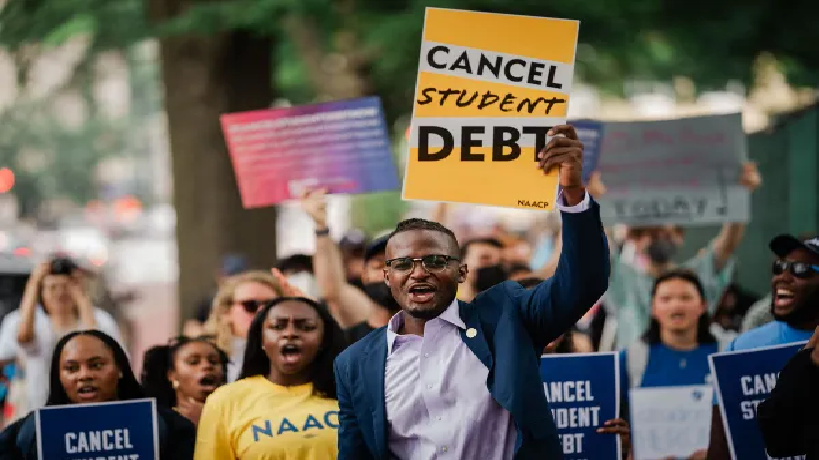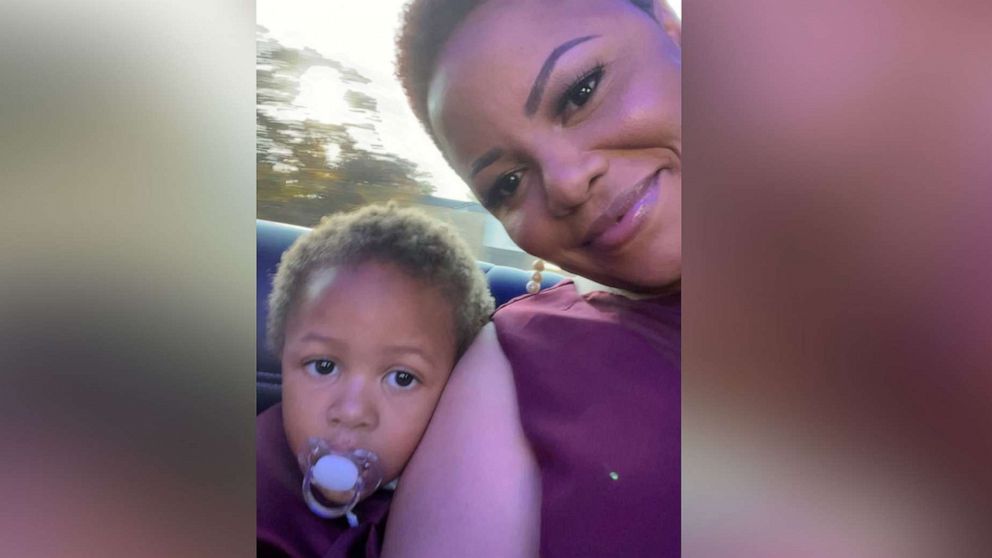
Black Women’s Equal Pay Day: How student loan debt has fueled the pay gap (Photo: The 19th News)
After the removal of student loan forgiveness, debt-ridden black women college graduates may find difficulty in repaying due to the student loan debt pay gap.
According to a published article from GMA, as a first-generation college student, Ravenn Moore, a 43-year-old mother from the Detroit area, claimed she racked up tens of thousands of dollars in student loan debt while pursuing both her bachelor’s and master’s degrees.
Moore said that during the following ten years, the interest on her college student loan debt caused an increase to more than $100,000.
In addition, Moore, who is currently a nonprofit director, claimed that it took her 10 years to rise in her position to a stage where she was earning more than $50,000 yearly.
“I value my education, but… [given] the expense of the student loan debt, I would have evaluated circumstances a little otherwise 10 years ago if I knew it would require me so long to get to a reasonable salary,” Moore said.
Moore unknowingly falls victim to the American wage gap, which sees Black women earning, on average, 67 cents for every dollar earned by white, non-Hispanic men. Black women have to labor until Black Women’s Equal Pay Day on July 27 to earn what their white, non-Hispanic male counterparts earned in 2022 alone.
Moore belongs to the group of people who are most disproportionately affected by student loan debt because she is a Black woman.
Moore stated that she would advise young Black women to educate themselves about the wage gap and college student loan debt because she is already dealing with what she calls the constant, “extremely stressful” load of her student debt.

Ravenn Moore, 43, is pictured with her son, Alex. (Photo: GMA)
According to an analysis by the American Association of University Women, women in the United States are responsible for over two-thirds of all outstanding student loans.
According to the Census Bureau, Black women are more likely than any other gender group to have college student loan debt, with about 1 in 4 of them doing so.
When it comes to paying back their student loan debt, black women likewise receive minimal assistance.
According to a study published last year by the nonprofit organization The Education Trust, which focuses on student equity, Black women are still in debt more than ten years after they first enrolled in college, owing 13% more than they borrowed, compared to white males, who have paid off 44% of their debt on average.
ALSO RECOMMENDED:
























